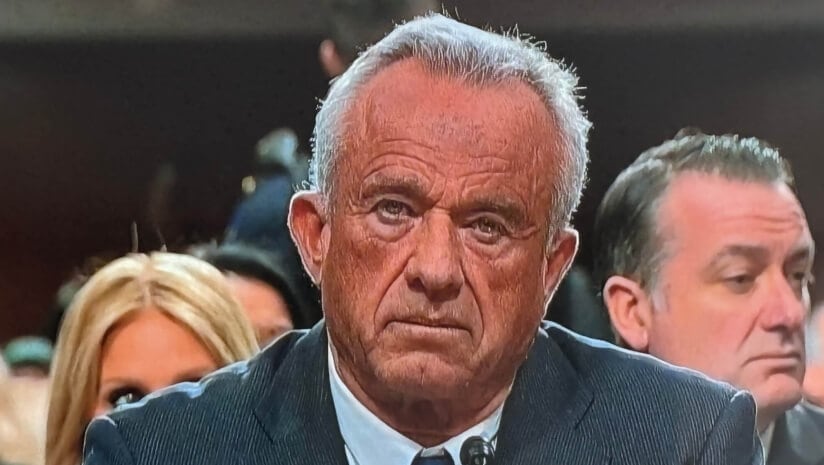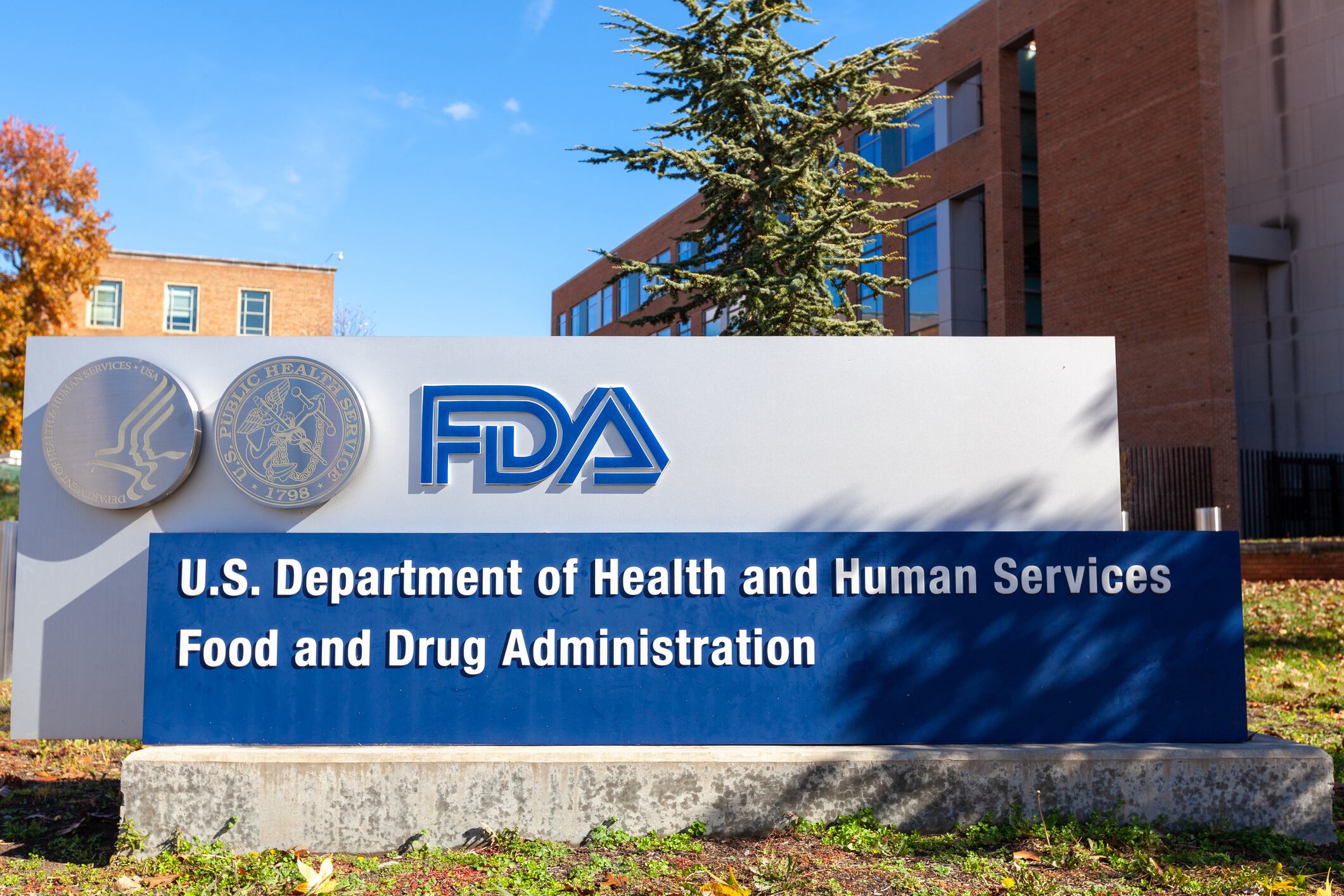Trade organizations representing the dietary supplement industry were quick to issue statements following confirmation, looking ahead to how the new secretary can help advance the preventative health agenda over the next four years.
“RFK Jr.’s journey from political outcast to secretary of HHS is nothing short of astounding,” Loren Israelsen, founder and president of the United Natural Products Alliance (UNPA), told NutraIngredients. “It only happened because he led, he raised his voice in support of a healthier America, and millions of Americans responded.”
The final vote was announced Thursday just before noon, with 52 Republican votes in favor and 48 votes against, including all Democratic senators, Mitch McConnell (R-Ky), Bernie Sanders (I-Vt) and Angus King (I-Maine).

‘A new day’
Within moments of the vote, the National Products Association (NPA) issued a statement congratulating Secretary Kennedy and applauding the selection of a leader who understands the value of dietary supplements and the right of individuals to make informed choices about their health.
“This is a new day for Americans and people globally who want natural products and dietary supplements as part of their balanced lifestyles,” said Daniel Fabricant, PhD, president and CEO of NPA. “The best way to fight chronic disease and hospitalization is keeping them healthy in the first place, and Secretary Kennedy will help lead us in that direction.”
The Council for Responsible Nutrition echoed this congratulatory and celebratory sentiment, stating that it looks forward to working with the secretary and the administration “to advance policies that empower Americans to take charge of their health, reduce chronic disease and build a more resilient, prevention-focused healthcare system.”
Karen Howard, CEO and executive director of the Organic & Natural Health Association, told NutraIngredients that “it’s time to throw the HHS playbook away,” noting that the pharmaceutical industry’s agenda largely drives U.S. health policy.
“With RFK Jr. at the helm, at least in the short term, we have the opportunity to affect change by using the collective voice of the millions of consumers we represent,” she said. “It is time to step up and advocate for legal and policy changes that will directly and immediately improve access to quality supplements, health services, programs and providers to improve health outcomes.”
On ‘going wild’
During Senate committee hearings, proponents and opponents debated the implications of “going wild” to upend the status quo and redress a broken health care system, a concept introduced by Donald Trump during an Oct. 26 campaign rally at Madison Square Garden.
Members of the dietary supplement industry expressed both hope and concern about the effects of dismantling and deregulating the current system.
“If there is dismantling of regulations that impact our industry, I feel confident that the majority of our industry is well aware of what we need to do and why,” said Elan Sudberg, CEO of analytical testing lab Alkemist Labs. “It’s the handful of bad players who need more enforcement and who will continue to do what they do until more enforcement is applied. Since the industry has his ear, we may finally see FDA address the cheaters more effectively.”

Sudberg campaigned widely for Kennedy and shared that the new Secretary told him personally that he loves the dietary supplement industry.
Suzanne Shelton, founder of industry public relations firm The Shelton Group, said that while she does not think that Kennedy has the experience to run a government department, she appreciates his views on nutrition and dietary supplements.
“I believe the responsible core of the industry will continue to do the right thing to produce safe and effective products, even if regulations are dismantled, and consumers will choose those brands,” she added.
In a recent LinkedIn post that drew dozens of comments, Todd Spear, VP of sales & marketing at Protein Research, shared that while he liked the idea of an agent of change, he did caution that backlash could lead to negative regulation of the supplement industry in the longer term.
“While RFK Jr. would be the first industry advocate we’ve had at this level, his past comments make him a polarizing figure,” Spear told NutraIngredients. “I have concerns that our industry could become more of a political seesaw in future administrations if the changes implemented are seen as too favorable. In the short term, I certainly welcome a shake-up of the status quo at the FDA and hope the industry can establish a meaningful dialogue with the agency and bring about real change.”
Science in question
One of the major arguments against the Kennedy appointment during the hearings was that he has long advocated opinions that undermine the science and public health, mostly hinging on his questioning of proven vaccine safety for the prevention of dangerous diseases.
“While I applaud some of his goals (like wanting to combat chronic disease and reform certain policies and procedures within his purview), his skepticism of commonly accepted science (e.g. vaccines are safe) and public support of unsubstantiated claims (e.g. vaccines cause autism) do not coincide with making the United States the ‘gold standard of science,’“ said Devon Gholam, PhD, vice president of science and innovation at Step Change Innovations.
She added that any potential benefits for the nutraceutical industry are overwhelmingly eclipsed by the potential harm RFK Jr. could do to public health.
Commenting on Spear’s LinkedIn post warning of unintended consequences, Susan Hewlings, PhD, co-founder of Substantiation Sciences, noted that the dietary supplement community fights so hard to offset the negative view that the industry is unregulated and “opening the flood gates for everything and anything seems to set us back.”
“Yes, we may need a change agent, but can’t we find one that is scientifically backed and values the scientific process?” she asked.
During hours of appeals delivered on Wednesday afternoon ahead of the final vote, Democratic senators urged their voting colleagues to consider that with Kennedy leading health and human services, the department would become ground zero for misinformation and lead to “setbacks in science that will echo in America for decades.”
They warned that hundreds of scientists will lose their jobs, health agencies will be gutted, and critical clinical trials will be defunded. Senator Patty Murray (D-Washington) said that he would “peddle quack treatments” with no basis in science.
In Sudberg’s view, the “threats to scientific research” is just noise from the opposition and that rather Secretary Kennedy wants to make sure that companies are accountable for the manufacture of quality products.
On the supplement agenda
With Kennedy set to assume duties as the top-ranking human health official, the industry is focused on how he can facilitate policies to ensure that American consumers have access to safe, effective and affordable supplements.
“[I]t is imperative that our nation’s healthcare leaders expand access, streamline regulatory pathways and reinforce public confidence through transparent, data-driven decisions,” said Scott Melville, president and CEO of the Consumer Healthcare Products Association (CHPA). “This can be achieved through the reauthorization of the Over-the-Counter Monograph Drug User Fee Program (OMUFA), Rx-to-OTC switch improvements and the modernization of the more than 30-year-old Dietary Supplement Health and Education Act (DSHEA).”
He added that CHPA stands ready to collaborate with the administration, Congress and other stakeholders on advancing these and other critical policies that prioritize the essential role consumer healthcare products play in benefitting the nation’s public health.
Commenting on regulatory action going forward, Jim Emme, CEO at natural health product manufacturer NOW Health Group, says that his company will continue to engage the HHS staff to help them understand existing laws. This includes educating on the need for the federal agencies to follow and enforce DSHEA while correcting the confusion around the drug preclusion clause in the NDI process.
“The unwillingness of the FDA to do its assigned jobs is not fully effective in protecting consumers from existing fraud and adulteration,” he told NutraIngredients. “It is also our view that the 17 states that have attempted to set up their own dietary supplement weight loss laws are the result of the vacuum that appears to have been created by the lack of engagement of the FDA with regard to all aspects of DSHEA.”
In its statement, NPA said that Kennedy’s leadership will be instrumental in addressing key industry issues, including streamlining labeling requirements, protecting free speech related to health claims, revising outdated regulatory provisions and safeguarding the supply chain for American dietary supplement companies. It expressed confidence that his balanced approach will help maintain strong safety standards while resisting unnecessary overregulation that could hinder innovation and consumer choice.
The American Herbal Products Association (AHPA) issued a statement in which it recognized the importance of open dialogue with HHS and other regulatory agencies to address, reform and improve policies that govern herbal products and dietary supplements and welcomed new opportunities to advocate for longstanding industry priorities.
UNPA’s Israelsen added that the mandate is clear that people want change, healthier foods and healthier land to address the underlying causes of disease.
“It is my deep hope that our industry will unite as it did during the battles of DSHEA to add our voice to RFK to do what many thought was impossible, making America a healthy nation,” he said.



